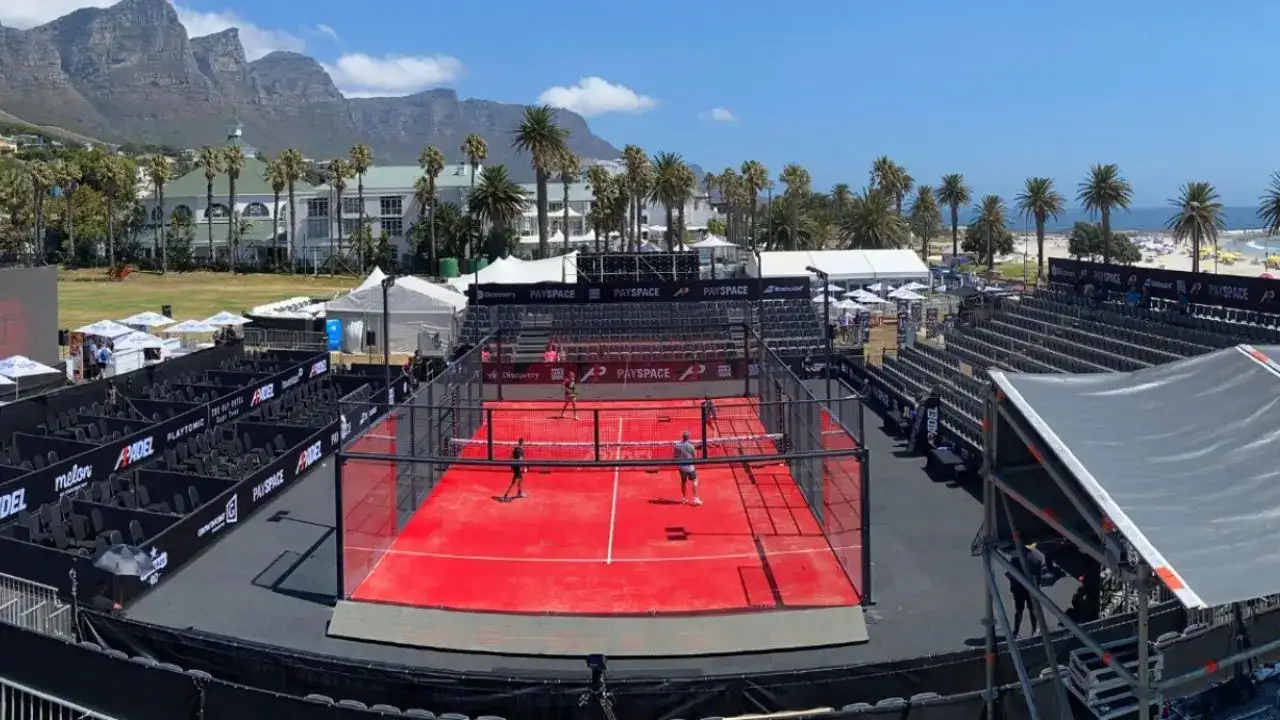
Padel's rise in Cape Town, the South African capital, faces challenges due to growing noise and light pollution, as well as a lack of clear regulations about public participation.
Padel - the high-intensity racquet sport - has surged in popularity in Cape Town, South Africa. But the sport - a mash-up of tennis and squash - faces a mighty challenge, with residents objecting to the construction of new courts in residential areas.
Padel's rise has drawn criticism in the South African capital due to growing noise and light pollution, and a lack of clear regulations for meaningful public participation.
In Claremont, the plan to set up eight indoor padel courts and a warehouse at the Claremont Villages Rugby Football Club faced resistance from residents, who alleged that the construction was being done without consultation.
“They tried to build these courts at the end of last year - just 30 metres from my bedroom window,” Zara Langford, 60, a resident of Claremont, told Independent Online. “We got a stop order in January. The land is not zoned for this type of high-impact, high-volume activity. You can’t just plonk a commercial sports facility with late-night operating hours into a residential zone and expect people to be okay with it.”
Langford feared that the padel matches from 6 AM to midnight, seven days a week, with 32 players at a time, would raise the noise level with players and spectators shrieking. “The sound of the ball hitting the glass is loud and jarring. It’s like living next to a shooting range,” she said.
In Noordhoek, padel court construction was halted due to community pressure. “We are not against padel - we are against the noise and light pollution that comes from open or inadequately soundproofed courts, especially when placed near homes,” said Zuidberg.
In the face of opposition, the planned construction of pickleball courts was put to rest. Now, the developer is looking for alternative locations away from residential areas to build courts.
Such is the situation in Cape Town that the deputy mayor of the city - Eddie Andrews - had to issue a media statement to outline the city's stance on padel.
Andrews acknowledged that, due to increasing objections and legal complications, some property developers have chosen to drop padel court components from broader development plans to avoid delays.
The issue has been that residents were not consulted. It is rather a policy paralysis that puts padel's rise in a fix. The trend is different from the approach taken by "countries like the Netherlands and France". "National governments work with developers and residents. We want to see the same here," said a resident.
Padel made rapid growth in South Africa, with the country registering over 100,000 players since its introduction in 2020.
Get Latest News Live on Times Now along with Breaking News and Top Headlines from Padel, Sports and around the world.
